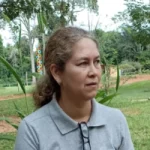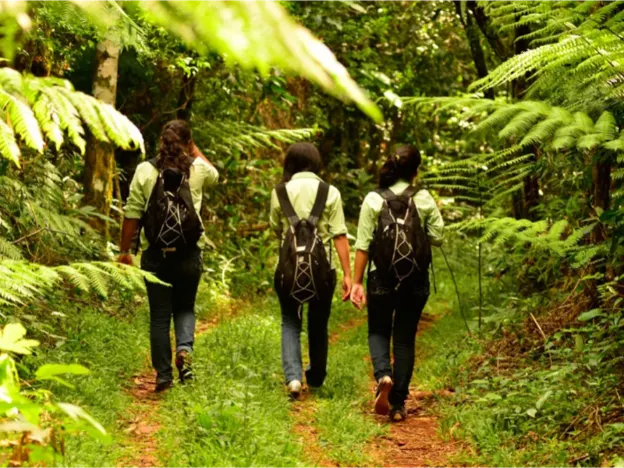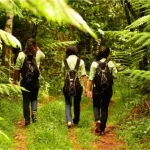Teacher: Sonia Sanabria

Sonia Sanabria
Sonia Sanabria has been the Director of the Mbaracayú Educational Center, located in the Mbaracayú Forest Natural Reserve, since 2012. She is also the Manager of Education for Sustainable Development at the Moisés Bertoni Foundation and between 2009 and 2013 she was a teacher of Environmental Education at the Educational Center. She has organized and developed seminars, education workshops, training events and educational resources for teachers, youth groups and school groups. Sonia has also designed and developed educational proposals on environmental issues and sustainable development. Her passion for nature, particularly her love for Mbaracayú, one of the last remnants of continuous forest in the Eastern Region of Paraguay, inspired her to become an Environmental Educator. Additionally, her concern for the limited access to education for rural women in Paraguay motivated her even more in this work.
Usefull links related to the Solution
Overview
The Mbaracayú Educational Center is a boarding school that has existed for more than 10 years and was created for rural and indigenous young women – aged between 15 and 18 years old – from rural communities in the Mbaracayú Forest Nature Reserve. The educational centre focuses on providing quality education based on the ‘learning by doing, selling and earning’ model and currently hosts 100 female students who are pursuing technical environmental high school education.
Theory of Change
Deforestation, monoculture and illegal hunting are all prevalent in the local area, these problems have led many small farmers to abandon their rural way of life. The educational centre focuses on providing quality education for young rural and indigenous women. By exclusively targeting women, the goal is to promote equality and eliminate the disadvantages rural women face in accessing education. This in turn will lead to the young women being able to access the labour market and therefore improve their quality of life and that of their families. The centre aims to incorporate necessary skills for the development of their communities within a framework of commitment to the environment and nature conservation.
Approach and Actions
The school has provided more than 400 young rural women with differentiated access to education, allowing them to continue their studies and in many cases become the first women in their families to complete high school. The school is supported by the Moisés Bertoni Foundation which champions the school as a social commitment to the sustainable development of local communities.
Located in the centre of the Mbaracayú National Forest Reserve, the school sits within 65,000 hectares of land. Teaching and learning in the school revolves around a self-sustaining educational model of ‘learning by doing, selling and earning’; and self-sufficiency, entrepreneurship and leadership for self-sustainable development are at the heart of the curriculum.
As part of the self-sustaining model of education, the school runs a hotel called Mbaracayú Lodge which offers accommodation to people wishing to experience the Mbaracayú Forest Nature Reserve. The students are involved in managing the hotel and providing tourism services such as acting as guides. Through these activities, the students gain transferable skills which are important for their personal development and may also be used for revenue-generating activities in the future. After successfully completing their studies, students at the school receive the title of Technical Bachelor in Environmental Sciences.
The Mbaracayù Educational Center not only provides an opportunity for students to study environmental science but also offers other initiatives such as math Olympiads, STEAM workshops, robotics and entrepreneurship forums.
Impact
The school has had a far-reaching impact on the students who have attended it. More than 400 young women have graduated since its creation and more than 30 projects have been implemented which financially support young rural and indigenous women in rural areas. Students are also supported in their further study and continuing project work. With help from the team at the school, 30% of graduates from the school have completed their university studies, with some students being awarded scholarships to local and international universities. An alumnae association ‘Asociación Brotes Mbaracayú’ has also been created which develops social and environmental projects in the Alumnae’s communities.

